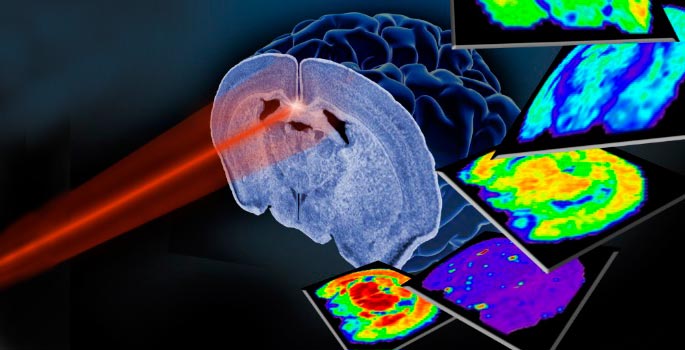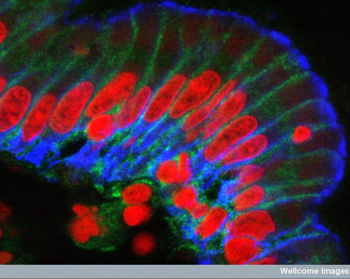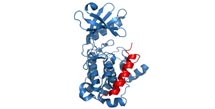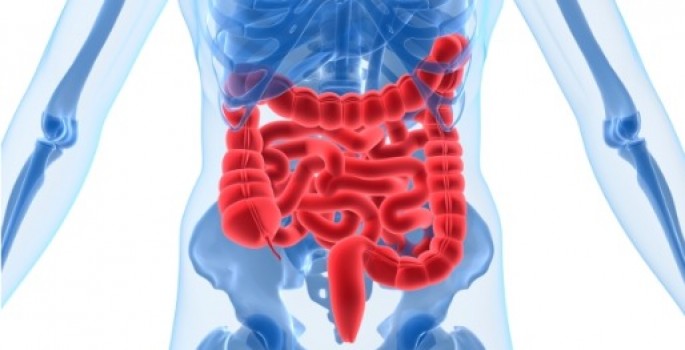Health And Medicine
-

Grant bolsters molecular imaging resource
Vanderbilt has received a $10.3 million federal grant to establish a national research resource for mass spectometry. Read MoreApr 1, 2011
-

How young brains make sense of senses
The brain’s ability to process multiple sensory inputs continues to develop well into childhood, a recent study shows. Read MoreMar 31, 2011
-

Gene ‘signature’ may predict cancer outcomes
A gene signature may be useful in predicting outcomes for patients with rhabdomysarcoma, a form of cancer most commonly diagnosed in children. Read MoreMar 25, 2011
-

Cancer Center study snuffs out menthol myths
People who smoke mentholated cigarettes are no more likely to develop lung cancer or die from the disease than are smokers of non-mentholated brands, a new study shows. Read MoreMar 24, 2011
-

Identifying genes to predict and prevent pre-term birth
Vanderbilt professor receives $585,000 March of Dimes grant to identify genes that may predict preterm birth and help in the development of drugs to prevent it. Read MoreMar 22, 2011
-

Breast cancer vulnerable to multi-hit therapy
Combining targeted therapies may increase their effectiveness in treating a common and aggressive form of breast cancer. Read MoreMar 21, 2011
-

Protein combos keep cells straight
Researchers define the protein interactions that establish our organs' lining. Read MoreMar 18, 2011
-

Spying on shape-shifting enzyme
New molecular views of an enzyme may inform therapies for neurological, psychiatric or cardiac diseases. Read MoreMar 18, 2011
-

Nurse staffing levels linked to patient mortality risk
A new study finds that when nurses' workloads increase during shifts because of high patient turnover, mortality risk also increases. Read MoreMar 17, 2011
-

Smell test tells disorders apart
Patients with certain autonomic nervous system disorders have impaired odor identification, which could aid in diagnosis. Read MoreMar 17, 2011
-

Neuroscience drug discovery center opens at Vanderbilt
Vanderbilt University Medical Center has established a new Center for Neuroscience Drug Discovery to accelerate research that may lead to new treatments for Parkinson's disease, schizophrenia and other disorders of the brain. Read MoreMar 11, 2011
-

Elephants can transmit TB to humans
Elephants can transmit TB to humans, researchers at the CDC, Tennessee Department of Health and Vanderbilt University have reported. Read MoreMar 11, 2011
-

Enzyme protects against inflamed colon
Increasing an enzyme required for a type of colon tissue may help dampen inflammation, a known risk factor for colon cancer. Read MoreMar 7, 2011
-

Chasing Foxd3’s role in stem cells
Researchers use genetic manipulations in mice and single-cell analyses to help explain stem cell regulation. Read MoreMar 4, 2011
-

Exercise can curb marijuana use and cravings
Just a few sessions on the treadmill can prevent marijuana cravings and use, new research finds. Read MoreMar 4, 2011
-

Vanderbilt-Ingram Cancer Center launches online genetic research tool
A new online tool enables cancer patients and researchers to track the latest developments in personalized cancer medicine and connect with clinical research trials. Read MoreMar 3, 2011
-

Worm gene function? Check the map.
New gene expression atlas created for roundworms provides a basis for establishing roles for individual genes in the development of specific cell types. Read MoreMar 3, 2011
-

Identification of glaucoma gene brightens future for therapies
Researchers have identified a new candidate gene for the most common form of glaucoma, which runs in families. The findings offer novel insights into glaucoma pathology and could lead to targeted treatment strategies. Read MoreFeb 24, 2011
-

Support needed to help nurses tackle substance abuse
Support and treatment, not punishment, are needed to help the 10 to 20 percent of U.S. nurses and nursing students who may have problems with substance abuse and addiction. Read MoreFeb 24, 2011
-

Weight’s impact on death risk among Asians revealed
New research about the link between body weight and mortality among Asians, which has not been studied in the past, finds being severely underweight poses a serious threat for this population and that preventing obesity is the top priority moving forward. Read MoreFeb 24, 2011